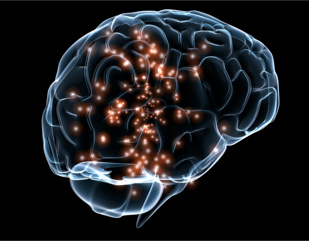Event Date:
Thursday, November 29, 2018 - 4:00pm to 5:00pm
Event Location
Weill Auditorium

Mel B. Feany, M.D., Ph.D., Professor of Pathology, Harvard Medical School and Brigham and Women’s Hospital
The longstanding goal of the research in the Feany laboratory has been to understand the molecular and biochemical pathways leading to neuronal dysfunction and death in neurodegenerative disorders, with a focus on -synucleinopathies, tauopathies and related age-dependent diseases. We have thus created models relevant to Parkinson’s disease, Alzheimer’s disease, and related neurological disorders in the genetically tractable model organism Drosophila.
We have subsequently carried out large-scale forward genetic screens and gene expression analyses in our models and have identified pathways, including excessive stabilization of the actin cytoskeleton and downstream mitochondrial dysfunction that mediate neurotoxicity in our fly models. We have demonstrated that many of these pathways also appear to contribute to neuropathology in mammalian models and in human disease. Additional areas of active investigation include the role of aging in promoting neurodegeneration and glial contributions to neuronal dysfunction and death in neurological disorders.
The longstanding goal of the research in the Feany laboratory has been to understand the molecular and biochemical pathways leading to neuronal dysfunction and death in neurodegenerative disorders, with a focus on -synucleinopathies, tauopathies and related age-dependent diseases. We have thus created models relevant to Parkinson’s disease, Alzheimer’s disease, and related neurological disorders in the genetically tractable model organism Drosophila. We have subsequently carried out large-scale forward genetic screens and gene expression analyses in our models and have identified pathways, including excessive stabilization of the actin cytoskeleton and downstream mitochondrial dysfunction that mediate neurotoxicity in our fly models. We have demonstrated that many of these pathways also appear to contribute to neuropathology in mammalian models and in human disease.
Additional areas of active investigation include the role of aging in promoting neurodegeneration and glial contributions to neuronal dysfunction and death in neurological disorders.

